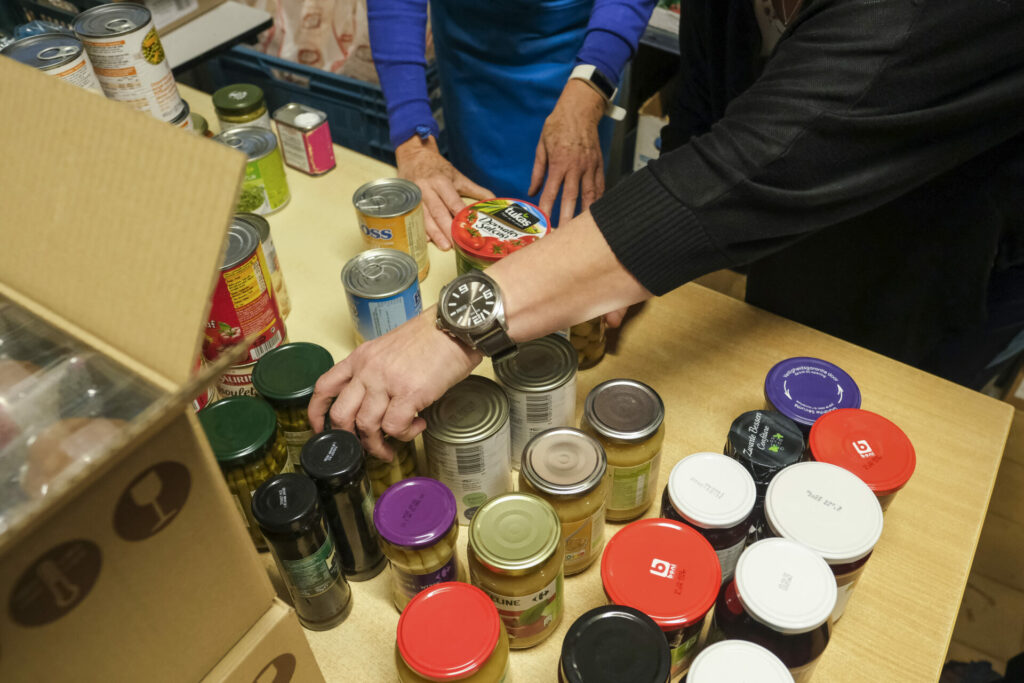While queues at food banks are growing, the stock of food available is falling fast with some organisations barely able to provide a meagre bag of supplies. They argue that Flanders has put too much responsibility onto local governments, De Standaard reports.
Didier Vande Cauter of the Merksem community centre Stroboertje said that the food surpluses they receive from supermarkets have greatly reduced. Not only is meat a rare commodity but even vegetable provisions have dropped 20%. Now is an especially difficult time of year, with some groups seeing five new families sign up for food deliveries every day.
The Belgian Federation of Food Banks estimates that member associations currently serve some 204,000 people a month – up 15% since the end of 2021. Though the addition of Ukrainian families has created extra pressure, Annelies Van Loo of Action Mensen In Nood Mol explained that the most concerned are those who until now had just enough to get by but have succumbed to the combination of difficulties facing households today.
"We especially see single parents at the moment. They have to pay school bills, heat their house and can put less and less in the supermarket basket."
Why the drop in supply?
Van Loo puts the decreased supply down to a number of factors; firstly, a sharp decline in donations from the food industry. "The increased energy prices are causing companies to work less on stock and more on demand," said the federation's director Jef Mottar. There is also less to collect from wholesalers, mainly because the greenhouse industry is cutting back on production.
Mottar also explained that supermarkets are now fighting a battle against food waste – prompted in part by Europe, which aims to halve food waste by 2030 compared to 2015. Yet whilst this is a step towards tackling wasteful habits by better matching supply to demand, it gives less opportunity for food banks to source excess stock.
Elsewhere, new companies such as Too Good To Go provide another chance for food that would not be sold to reach consumers.
Too much local responsibility
In addition to the national network of food banks, since 2015 Flanders has issued subsidies to set up social distribution platforms (food hubs) in the region. These local centres have also seen a year-on-year decline in stocks – most notably in Antwerp (though several sites in West Flanders have made gains).
Related News
- Poor becoming poorer in Belgium, lower middle class increasingly struggling
- More Belgian residents relying on food banks as food donations decline
"Flanders still places too much responsibility on local authorities," said MP Maxim Veys, highlighting the Dender and Flemish Ardennes regions, where a lack of local initiative has left many families without the safety net that food hubs provide. Veys believes that the local platforms should be harmonised so that all regions have a standardised structure to offer help.

